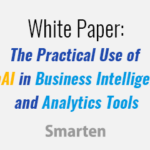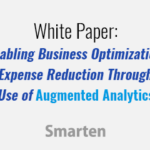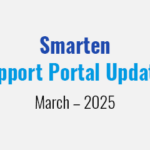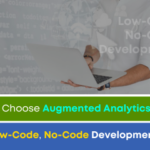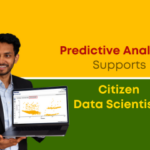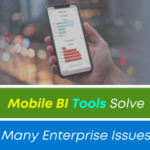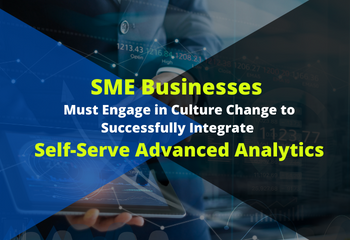
Small and medium sized businesses (SMEs) are often challenged to satisfy all the roles and responsibilities in the organization and most team members wear more than one hat. That feeling of being overstretched is typical of growing businesses and, in an increasingly competitive market with businesses fighting for skilled resources, it is difficult to meet budget and scheduling goals and get it all done.
One of the most common SME considerations today is how to satisfy the need for actionable data and fact-driven decisions without hiring a team of data scientists. A recent Gartner study states that, the number of data and analytics experts in business units will grow at three times the rate of the experts in IT departments, forcing companies to rethink their organizational models and skill sets. That prediction is a reflection of the move to self-serve data analytics and it recognize that SMEs must further empower their team members and hold them accountable for results.
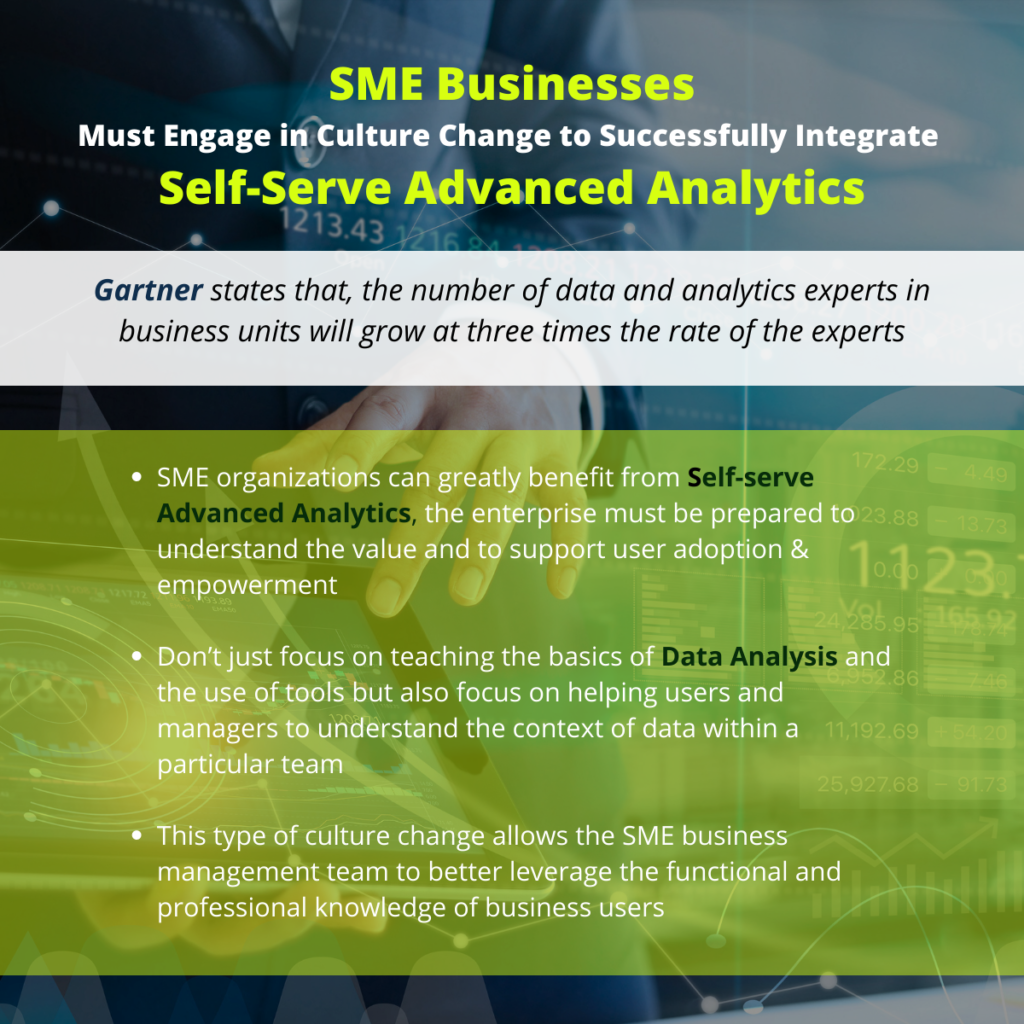
But, to democratize data and enable data literacy across the SME organization, the business cannot simply implement an advanced analytical solution. It must fundamentally change the enterprise culture so that the management team, IT and professional analysts support and encourage the use of data and facts in presentations, and in business user advancement and skills, and that concept of Citizen Data Scientists is embedded in each department and division.
The demand for hybrid skills (soft, technical and functional skills) is growing day by day and nearly every business, no matter the size, now requires a data-literate workforce. No matter the employee role, every user must be able to use and understand data and to share and explain data in a meaningful way.
Augmented analytics tools provide guidance and recommendations so users can find data and analyze it in a way that is meaningful to them and to their audience, without having the skills of a data scientist. Sophisticated functionality is married with simplicity of use and intuitive environs, so business users can enjoy data popularity and power users will emerge to further solidify the collaborative data-driven environment in the organization.
While SME organizations can greatly benefit from self-serve advanced analytics, the enterprise must be prepared to understand that value and to support user adoption and empowerment. Don’t just focus on teaching the basics of data analysis and the use of tools. Your business must also focus on helping users and managers to understand the context of data within a particular team or department and mentor and support users as they make the transition from being data dependent to becoming more autonomous and data literate.
To make the transition to self-serve augmented analytics, SMEs can find and nominate champions within each area of the business and look for opportunities to suggest and support projects that entail data analysis and presentation with the goal of creating actionable outcomes that will encourage the team and individuals to embrace data analytics and use it as part of the process on a daily basis. An SME should tie metrics and data analytics to goals and objectives to engender analytical deliverables and insight. As the culture shifts, the SME business can also encourage the collaboration of IT, Citizen Data Scientists and analysts or data scientists to further solidify the organization.
This type of culture change allows the SME business management team to better leverage the functional and professional knowledge of business users by allowing them to test theories and hypotheses and validate business decisions to get the best outcomes for every stakeholder in the business.
Original Post : SME Businesses Must Engage in Culture Change to Successfully Integrate Self-Serve Advanced Analytics!



